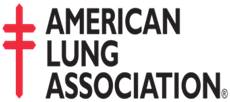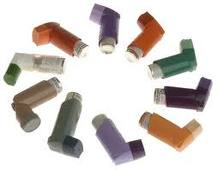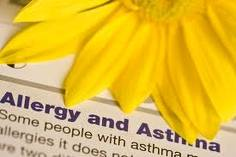The MCPHD offers a free asthma referral service
Services offered:
- Asthma education;
- Environmental assessment of the home, schools, workplace.
Education offered for topics such as:
- Appropriate developmental tasks and expectations;
- Asthma action plan;
- Asthma self management;
- Adherence to asthma action plan;
- Home/work/school environment assessment;
- Peak flow monitoring;
- Trigger identification;
- Common symptoms and early detection;
- Socio-economic and psychosocial concerns;
- Safety issues.
Asthma Risk Factors
The nature of bronchial asthma is not fully understood. However, doctors identify several factors that increase risk of getting sick:
- Hereditary predisposition. It was found that the risk of developing bronchial asthma is 2.6 times higher in children whose mothers suffer from this pathology, 2.5 times higher – with father’s illness and 6.6 times – if both parents are sick with bronchial asthma.
- Atopic dermatitis in early childhood, as well as other allergic diseases. Over time, they can “transform” into asthma.
- Smoking of a mother during pregnancy increases the risk of a child suffering from asthma by 25%. The forecast also worsens strongly in the case when adults smoke next to baby after his birth. The severity of asthma depends on the number of cigarettes consumed daily. In such children, the first bouts of shortness of breath often develop at the age of one month.
- An unfavorable ecological situation, for example, living next to large enterprises or where the air is heavily dusty.
- Frequent colds, if they give complications to bronchi. According to the results of one of the worldwide studies, in 25% of children who had an obstruction (lumen narrowing) caused by viruses, bronchial asthma subsequently developed.
Asthma – Best Practices Guidelines
![]() Best Practices Guidelines – Asthma
Best Practices Guidelines – Asthma
PRESTIGIOUS ASTHMA SOCIETIES SUPPORT FeNO MEASUREMENT
As the leader in the measurement of fractional exhaled nitric oxide (FeNO), Aerocrine is excited to announce that 2 prestigious asthma societies have formally endorsed FeNO measurement as a valuable tool for use in the assessment and management of asthma.
Last week, the American Academy of Allergy, Asthma and Immunology (AAAAI) and the American College of Allergy, Asthma and Immunology (ACAAI) released a joint position statement1 endorsing and supporting the American Thoracic Society’s (ATS) clinical practice guideline: Interpretation of Exhaled Nitric Oxide for Clinical Applications. The endorsement by the ACAAI and AAAAI underscores the importance of measuring FeNO to asses airway inflammation when determining appropriate treatment for patients with asthma.
The measurement of [FeNO] is quick, simple and reproducible, and has been standardized for clinical use. . . . The ATS guideline provides a foundation for clinicians in the interpretation of FeNO measurement in the context of the diagnosis and management of asthma.
— AAAAI/ACAAI joint statement of support.
The ATS guideline, which was published in September 2011, defines clinical situations in which FeNO testing is appropriate, as well as specific cut points to use when interpreting FeNO levels.2 The ATS guideline, now endorsed by the AAAAI and ACAAI, notes that FeNO testing provides valuable information to the physican that traditional clinical tools cannot provide.
We appreciate your support and will keep you updated on future news about FeNO measurement via monthly e-mails and communication with your local Aerocrine representatives.
Please contact us should you have any further questions regarding this communication
If a friend forwarded you this e-mail and you would like to receive future e-mails from Aerocrine, you may subscribe here.
Other Resources
Durable Medical Equipment (DME’s)
Home Respiratory Services Inc
8455 Castlewood Drive
Indianapolis, IN 46250
(317) 841-0202
Knightingale Medical of Indiana LLC
5201 Park Emerson Drive Ste 6
Indianapolis, IN 46203
(317) 783-6123
At Home Health Equipment
4309 W 96th St
Indianapolis, IN 46268
(800) 848-4670
www.ahhe.com
Praxair
9019 Broken Arrow Road
Indianapolis, IN 46234
(317) 271-7362
Apria Healthcare
7353 Company Drive
Indianapolis, IN 46237
(317) 865-4200
www.apria.com
Lincare
4245 South Highschool Road
Indianapolis, IN 46241
(317) 856-8841
Lincare Disease Management
Pharmaceuticals











